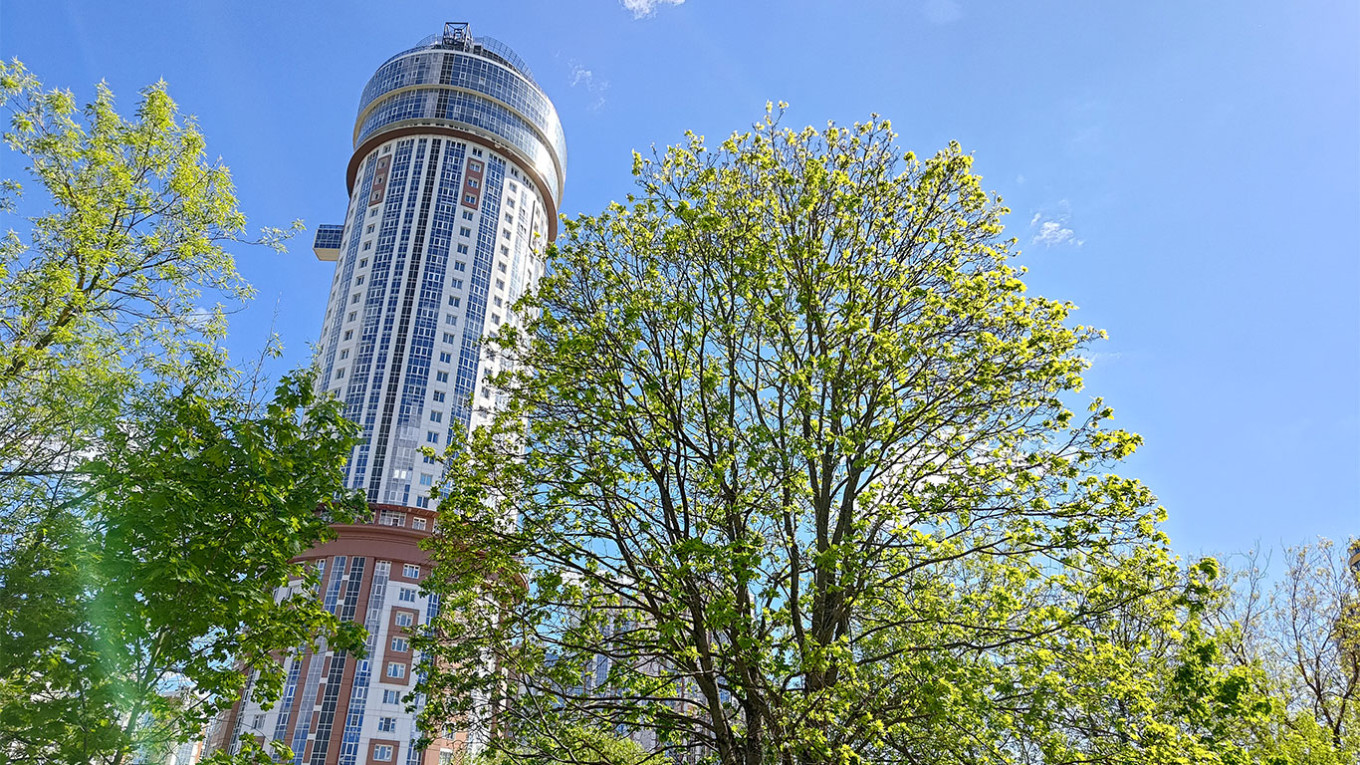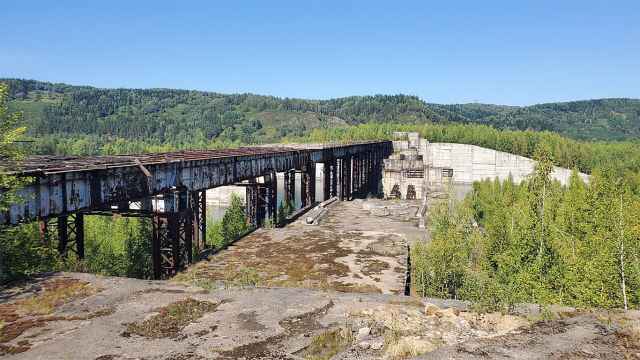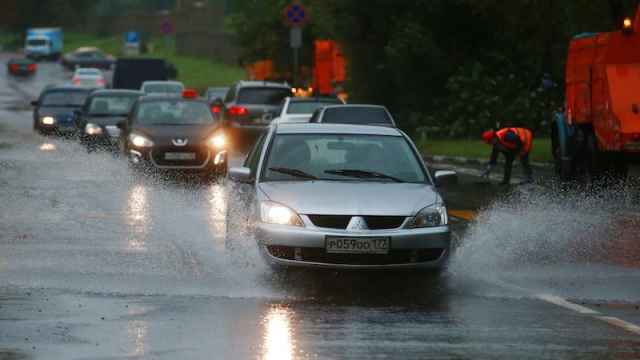KHIMKI, Moscow region — On a sunny May afternoon, a young man named Yevgeny sits on a bench in a courtyard, watching his child run around on the playground.
Two years ago, when his family chose this location in the Moscow region as their home, it seemed like it could be a perfect fit. After all, the Mayak apartment complex is a quiet gated community with its own courtyard and a nearby yacht club and sand beach along the canal.
But last year, he and his family discovered that their new home lacks basic amenities like clean tap water and safe sanitation.
“You enter the lobby and you smell the sewage. We’ve smelled it every day since last fall,” Yevgeny told The Moscow Times, describing the “unsanitary conditions” in the complex’s centerpiece high-rise tower where he lives.
In mid-May, the community of this affluent residence in Khimki, a suburb just 20 kilometers from Moscow’s city center, raised the alarm over sewage overflow. Residents posted videos showing the ground floor flooded with wastewater and reported a "persistent smell of feces" seeping into apartments on “every floor.”
The smell is not the only unpleasant thing. Sewage overflow has been linked to infectious diseases including tuberculosis, poliomyelitis and hepatitis A.
On May 18, sewage effluents still lingered beneath the Mayak’s high-rise tower, just steps away from the Moscow Canal and the yacht club, as seen by The Moscow Times’ reporter.
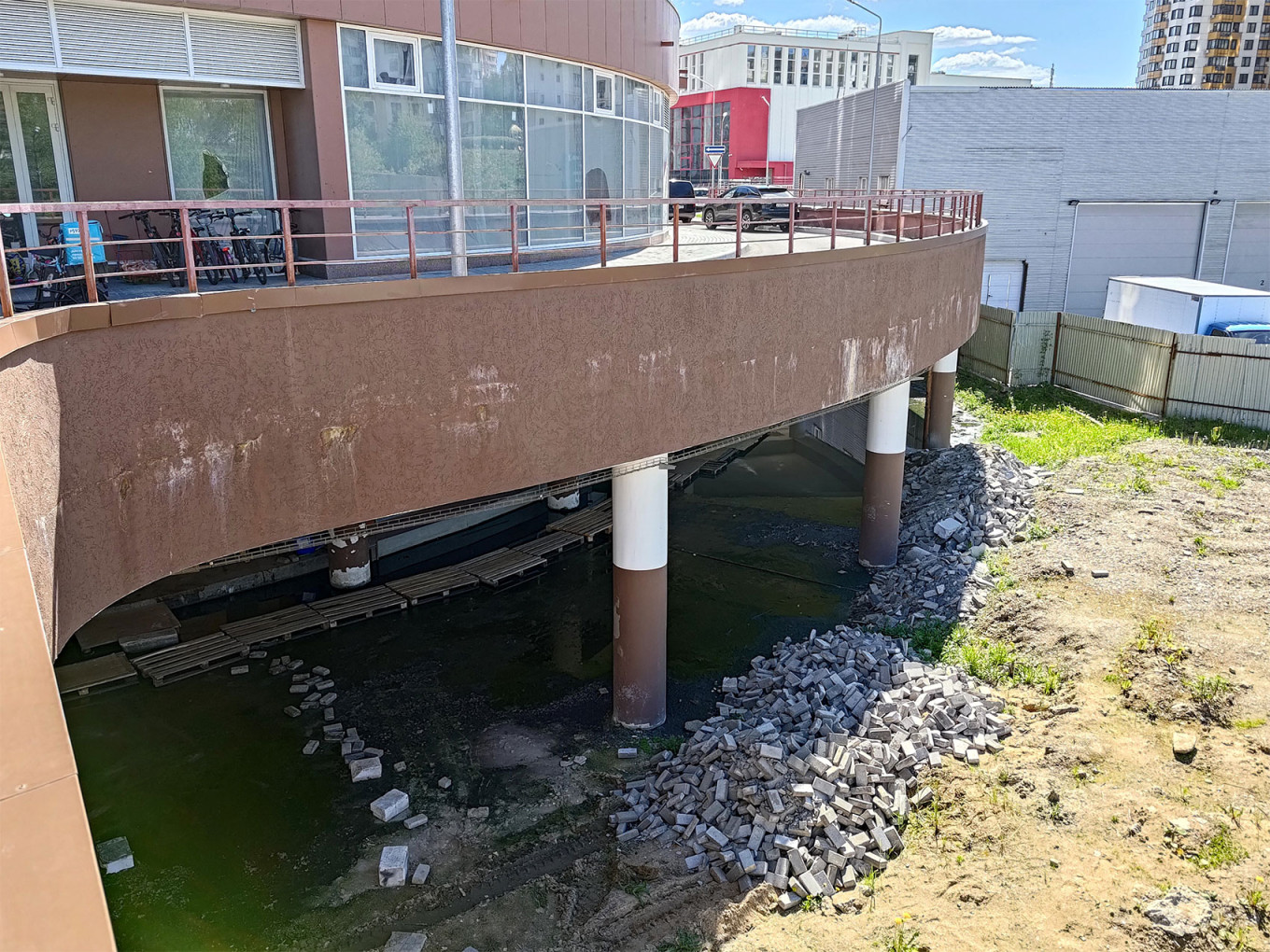
Yevgeny’s family is also unable to drink the tap water.
“The water is very bad — some people in the group chats even say that it's the color of Fanta [orange soda]. We constantly clean the system because it clogs up. We see how rusty it is, but there's nothing we can do," he continued.
This is hardly the first sewage failure here. After a new private school opened nearby last year, the Mayak complex and the school itself were “almost constantly submerged in sewage water,” Yevgeny said.
“It seems that during construction, the developer did not replace some of the old [sewage] systems. They might have cut costs, or perhaps they didn't anticipate this,” he said.
“It's possible that there were initially some miscalculations because the [sewage] load should have been calculated to be higher.”
Yevgeny asked that his name be changed due to the potential repercussions of publicly criticizing his housing administrator.
Other Moscow suburbs have seen similar incidents. In the town of Shchyolkovo, a state of emergency was declared last year due to a heavy sewage discharge into the local Klyazma River.
'Whole bunch of problems'
Marina, a Mayak resident who recently bought an apartment here, told The Moscow Times that she was already “disappointed” by the sewage failures.
“I really liked the place, but it turned out to be a whole bunch of problems. The building is even infested with silverfish bugs. The management company doesn't treat them," Marina said, sharing a video where the insect, a common household pest, was uncovered under the floorboards in her new home.
“I've even halted renovations for now. I’m considering whether to sell [the apartment]... In the community group chat, they often talk about rusty water, too. I haven’t encountered this yet, but it makes me worried.”
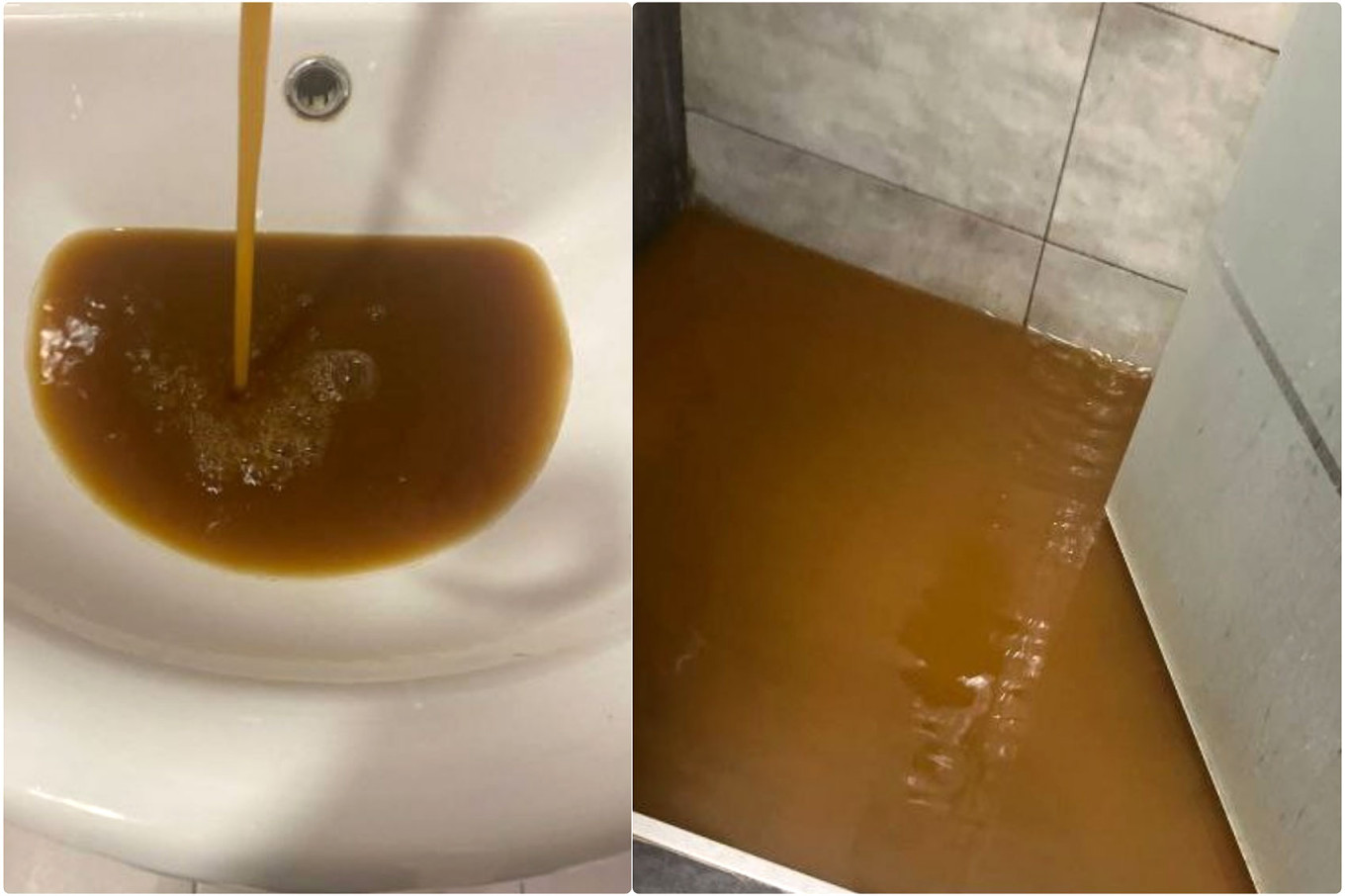
Mayak’s developer touts the complex as a "symbol of luxurious living" in an ecologically pure area with panoramic water views.
Though it’s located in a suburb of the Russian capital, apartments in this complex are sold at prices similar to real estate in Moscow itself, Yevgeny said, adding that Mayak’s prices have recently risen significantly.
"At the development stage, we bought [a three-room apartment] of 86 square meters for 13 million rubles [$142,000]. And now it costs 26 million."
In 2023, the average annual salary stood at 1.7 million rubles in Moscow and 1 million rubles in the Moscow region.
While some have already poured millions into their dream apartment, only to find themselves enveloped in foul smells, for others, Mayak was simply beyond their means.
“By Khimki standards, the apartments here are expensive,” said a middle-aged woman from a neighboring high-rise who was taking a walk with a child relative in Mayak’s courtyard.
“When we had the choice to buy in Mayak or in that [neighboring building] — that was a year ago — of course, we just couldn't afford the apartments in Mayak,” said the woman, who declined to share her name.
The water utility notified residents in April that the local sewage pumping station was in critical condition and its reconstruction was underway.
Yevgeny said that the utility company and officials only took action after numerous complaints from residents.
“The progress [on addressing the issue] is currently underway, but we don't know if it will be in a positive direction or not,” he said.
An equator of obsolete pipes
Mayak’s situation illustrates how relentless urban development on top of Russia’s obsolete infrastructure has made public utility failures a common occurrence for many Russians.
This winter, mass utility outages left millions without heating, water or electricity across the country, including in Moscow’s suburbs.
In one of the largest sewage overflow accidents, wastewater flooded the southern city of Volgograd and spilled into the Volga River, Russia’s main waterway, in 2022.
A year before, 11 workers died in a sewage collector in the southwestern city of Taganrog due to a sewage rupture with a gas release.
Officials acknowledge that the wear and tear on sewage treatment facilities, many of which were built in the 1960s and 1970s, is a chronic problem for most of Russia’s regions, many of which lack the funds to replace them.
While the number of sewage-related accidents in Russia has fallen in recent years, the total length of pipes needing replacement is on the rise and currently stands at 38,600 kilometers — nearly the length of the Equator.
According to some estimates, 17 major sewage facilities in the Moscow region are overloaded. Since some housing like countryside dachas lacks centralized sewage, authorities report unauthorized discharges into the sewage system that further stress the aging pipes.
Prime Minister Mikhail Mishustin in May announced a 4.5-trillion-ruble ($50 billion) program to modernize the country’s utility infrastructure, with 90% of its funds allocated to pipe replacement. Russia’s 2024 defense budget is over twice as large by comparison.
The sluggish pace of sewage system renewal could be due to insufficient investment, potential corruption and a lack of stakeholders with an economic interest in proper maintenance, a Russian environmental expert and activist told The Moscow Times.
Another issue is poor public oversight of authorities’ and utilities’ actions. The expert said that some Russians, especially those who lived through the Soviet era, may sometimes lack the agency to address issues happening beyond their doorstep.
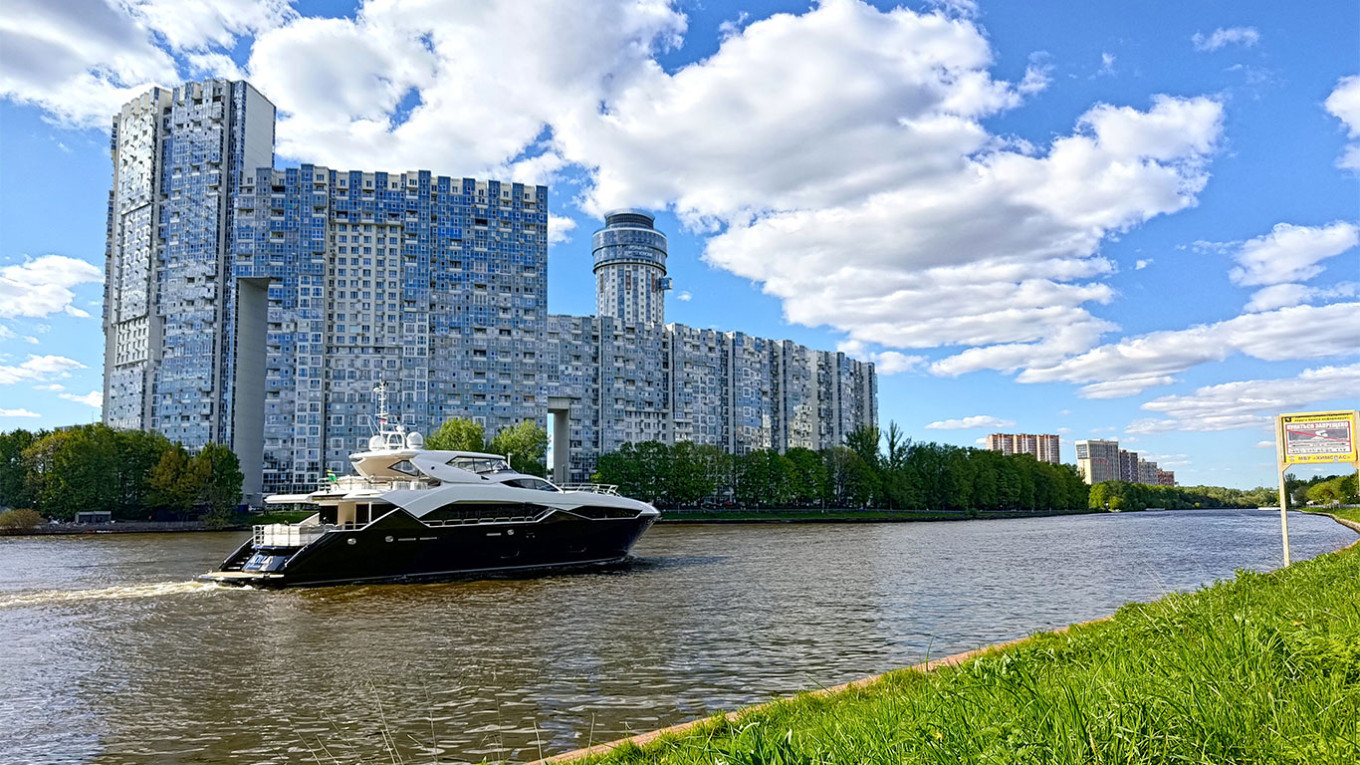
Consequently, these residents might not actively engage with issues concerning their apartment buildings or attend homeowners’ meetings, they said.
“Vodokanal [the water utility company] has its responsibility, budget and a repairman — they must come and fix any issues,” said the expert, who requested anonymity due to their affiliation with a group targeted by the authorities.
“But on the other hand, who is supposed to monitor them? It’s a collective ‘owner’ consisting of residents who … live in this building. And how they keep an eye on things will determine whether they end up in these situations.”
Back in the Mayak courtyard, the anonymous middle-aged woman took a stoic view of the issue.
“Look at how big the buildings are here — there just can't be a situation where there are absolutely no problems,” she said.
“In our building, it's like: someone or another's apartment was flooded or some pipes burst somewhere. It's the same everywhere, I think.”
A Message from The Moscow Times:
Dear readers,
We are facing unprecedented challenges. Russia's Prosecutor General's Office has designated The Moscow Times as an "undesirable" organization, criminalizing our work and putting our staff at risk of prosecution. This follows our earlier unjust labeling as a "foreign agent."
These actions are direct attempts to silence independent journalism in Russia. The authorities claim our work "discredits the decisions of the Russian leadership." We see things differently: we strive to provide accurate, unbiased reporting on Russia.
We, the journalists of The Moscow Times, refuse to be silenced. But to continue our work, we need your help.
Your support, no matter how small, makes a world of difference. If you can, please support us monthly starting from just $2. It's quick to set up, and every contribution makes a significant impact.
By supporting The Moscow Times, you're defending open, independent journalism in the face of repression. Thank you for standing with us.
Remind me later.


